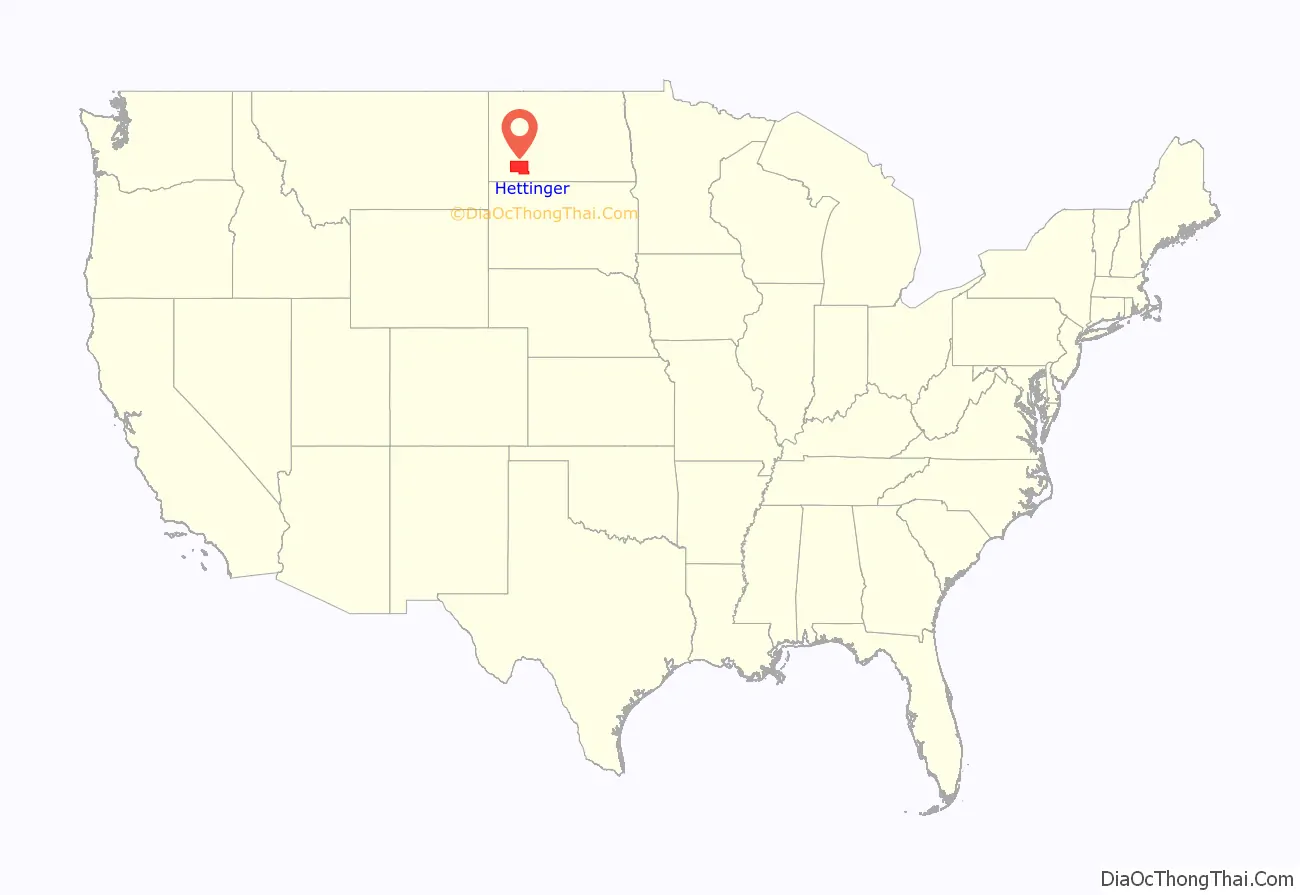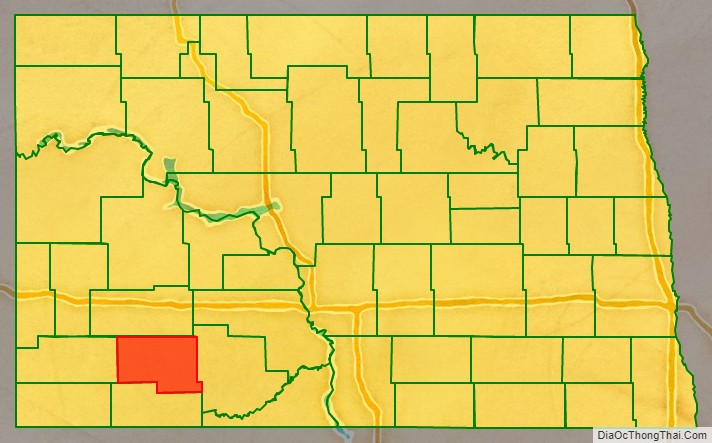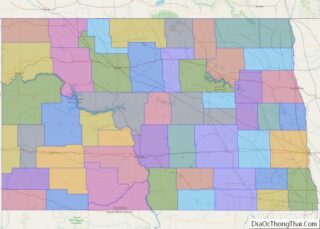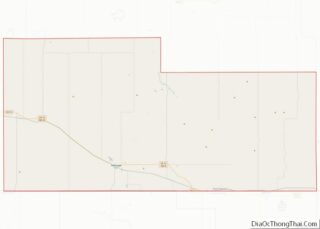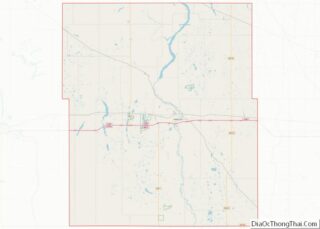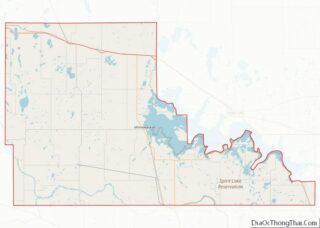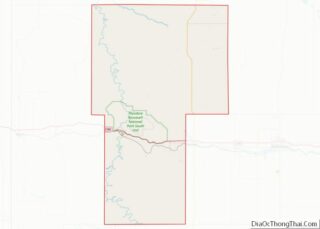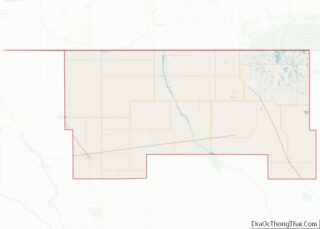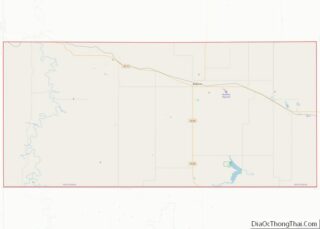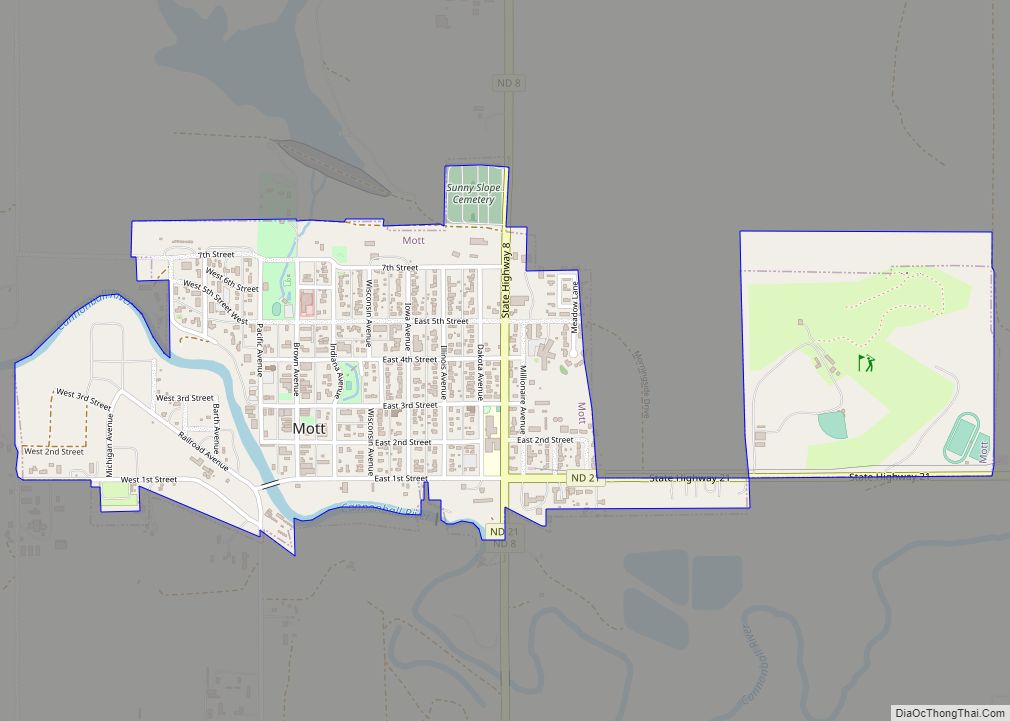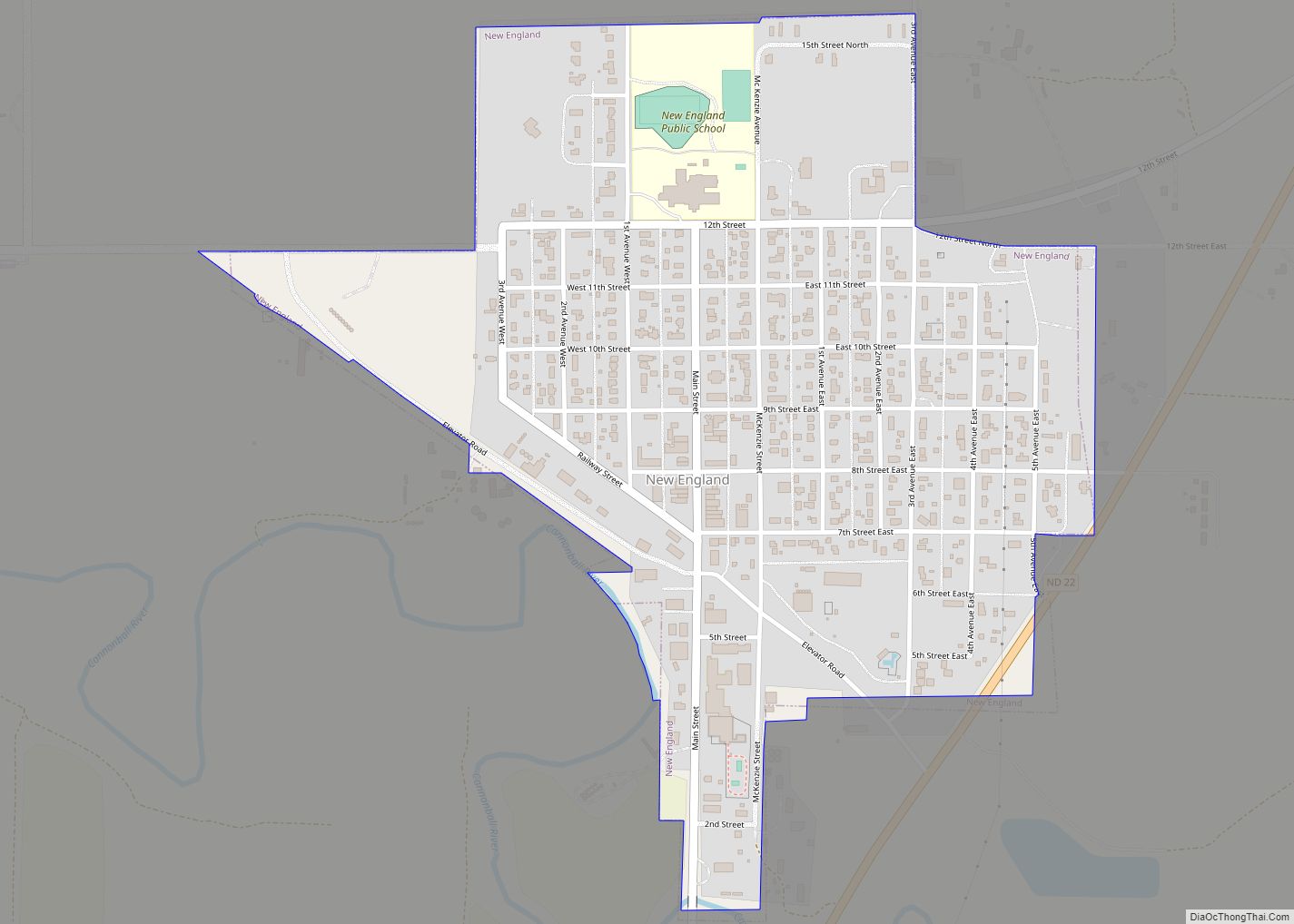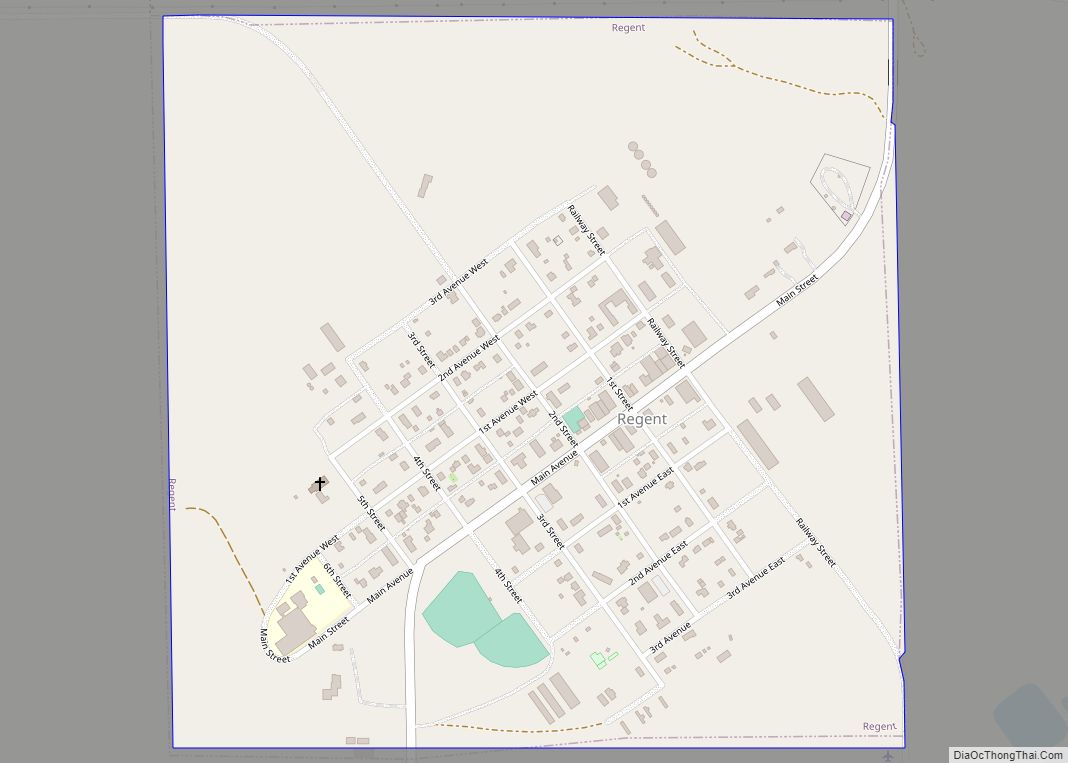Hettinger County (/ˈhɛtɪŋɡər/ HET-ing-gər) is a county in the U.S. state of North Dakota. As of the 2020 census, the population was 2,489. Its county seat is Mott.
The city of Hettinger, North Dakota, is in nearby Adams County.
| Name: | Hettinger County |
|---|---|
| FIPS code: | 38-041 |
| State: | North Dakota |
| Founded: | 1883 |
| Named for: | Mathias Hettinger |
| Seat: | Mott |
| Largest city: | Mott |
| Total Area: | 1,134 sq mi (2,940 km²) |
| Land Area: | 1,132 sq mi (2,930 km²) |
| Total Population: | 2,489 |
| Population Density: | 2.2/sq mi (0.85/km²) |
| Time zone: | UTC−7 (Mountain) |
| Summer Time Zone (DST): | UTC−6 (MDT) |
| Website: | www.hettingercounty.net |
Hettinger County location map. Where is Hettinger County?
History
The Dakota Territory legislature created the county on March 9, 1883, with territory partitioned from Stark County. Its government was not organized at that time. The county name was chosen by territorial legislator Erastus A. Williams, to honor his father-in-law, Mathias K. Hettinger (1810-1890), who had been a banker and public figure in Freeport, Illinois. A settlement on the Cannonball River was selected as the county seat (Mott).
The county boundaries were reduced in 1885 and 1887. The county was dissolved on November 3, 1896, but was re-created on May 24, 1901, by an action of the state supreme court. This re-creation slightly altered the county’s boundaries, due to the redefinition of its boundary lines: a sliver of non-county area between 46°N latitude and the south boundary line of North Dakota was added; a sliver on the west boundary was lost when the definition of the line shifted from 103°W longitude to the survey line dividing Ranges 98 and 99 (to allow the county lines to be defined by federally-surveyed lines).
Since the county’s government was still unorganized, it was attached to Stark County for administrative and judicial purposes on March 10, 1903.
On April 17, 1907, the southern half of the county was partitioned off to form Adams County. On April 19 the Hettinger County governmental organization was effected and the county was administratively detached from Stark County.
Efforts to dissolve Hettinger County
In 1891, the North Dakota Legislature approved legislation to dissolve Hettinger County and add its territory to Stark County, but the law was vetoed by Governor Eli C. D. Shortridge.
Annexation was attempted a second time in 1895, when the legislature passed legislation expanding the boundaries of Stark, Billings and Mercer Counties, subject to approval by the counties’ voters. The vote was approved, annexation went into effect November 3, 1896, and Hettinger County was eliminated. However, Wilson L. Richards, a cattle rancher in one of the annexed counties, sued to overturn the annexation because he and other landowners were now subject to taxation by Stark County. The case went to the North Dakota Supreme Court, which ruled the law unconstitutional on May 18, 1899. The annexation remained in effect, however, due to a replacement law approved by the legislature March 9, 1899 in anticipation of the court’s decision. The second annexation law was overturned by the Supreme Court in 1901 because the annexation was not referred to the voters of the affected counties as required by the North Dakota Constitution.
The Legislature passed a third annexation law in 1903, this time submitting it to the voters in Stark County and the unorganized counties of Dunn and Hettinger for approval. The annexation was approved by 502 votes in Stark County and 65 votes in Hettinger County, but it failed by 1 vote in Dunn County. Stark County claimed the annexation vote valid, since the legislation required a majority of the aggregate votes cast. However, the North Dakota Constitution required a majority vote in each affected county subject to annexation, so the state of North Dakota sued Stark County on the grounds that the enabling legislation was unconstitutional and that the “no” vote in Dunn County meant the annexation failed. The North Dakota Supreme Court ruled the 1903 law unconstitutional in 1905, which ended further attempts at annexation.
Hettinger County Road Map
Geography
The Cannonball River flows east-southeasterly through the central part of the county. The county terrain consists of semi-arid rolling hills, mostly devoted to agriculture. The terrain slopes to the east and south; its highest point is a hill at the northwestern corner, at 2,897′ (883m) ASL. The county has a total area of 1,134 square miles (2,940 km), of which 1,132 square miles (2,930 km) is land and 1.6 square miles (4.1 km) (0.1%) is water.
Major highways
- North Dakota Highway 8
- North Dakota Highway 21
- North Dakota Highway 22
Adjacent counties
- Stark County (north)
- Grant County (east)
- Adams County (south)
- Slope County (west)
Lakes
- Dry Lake
- Jung Lake
- Larson Lake
